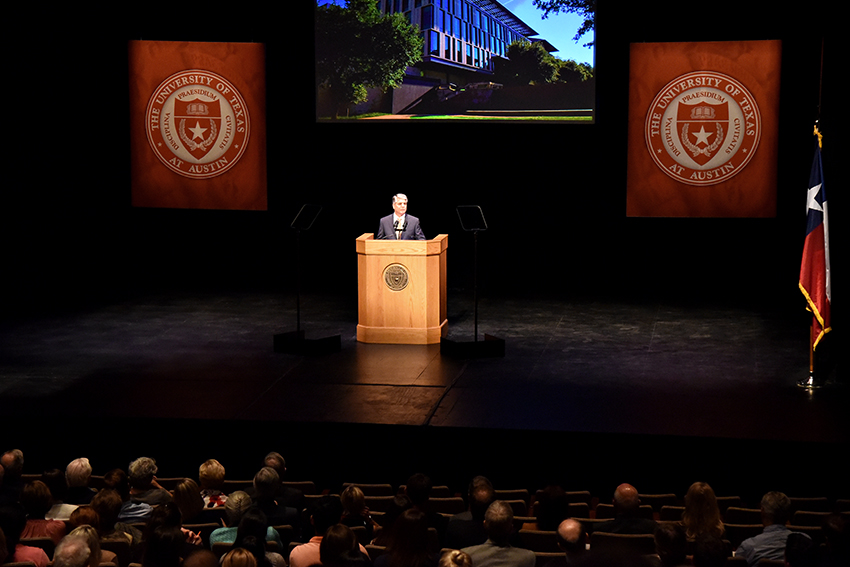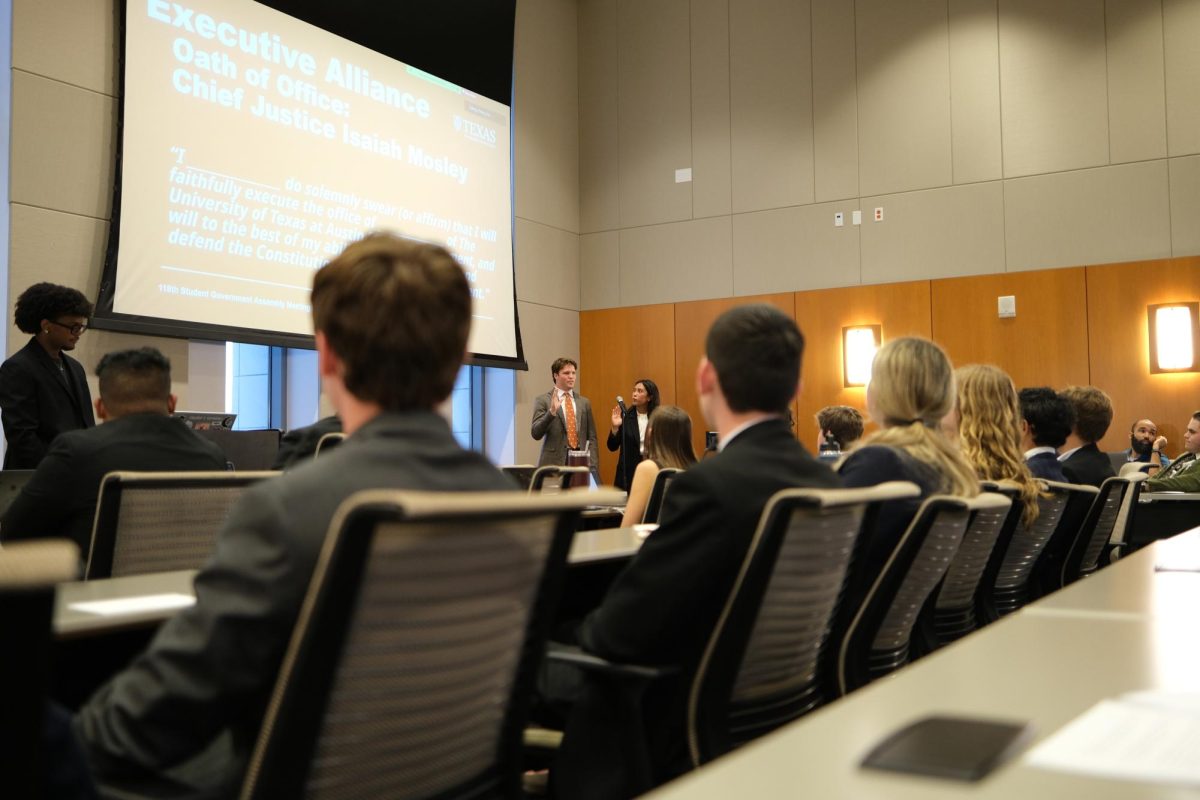UT will commit $15 million in financial aid over the next two years to middle-income families starting next fall, University President Gregory Fenves announced during his State of the University address on Tuesday.
Fenves said this is being done in order to keep UT affordable and accessible by targeting families that may not qualify for federal aid but are still struggling to pay
for college.
However, not all students say they agree the money is going to the right place.
Biochemistry junior Rosamaria Marquez said the money would do more good going to families of a lower socioeconomic status.
“I’m from a low-income family, my parents are from Mexico,” Marquez said. “When he said it was for middle-income families, I was not so happy with it, because, obviously, low-income families need it more. I’m paying for college mainly through loans and grants, and my family contribution is zero.”
Student Government president Kevin Helgren said he doesn’t think the University is prioritizing one socioeconomic class over another, but rather trying to assist a larger group of students.
“I think it is an effective way to target a large population of people who are expected to pursue a higher level of education, but who don’t necessarily have the means to do so,” Helgren said about Fenves’ announcement. “I do think that social and economic equality are things we should consider when moving forward, but I definitely think the financial plan he announced is taking steps in the right direction.”
According to Forbes, roughly one-in-four students at UT are considered low-income, and 38 percent of all students take out some form of federal loan.
Chemistry senior Carlos Orozco said he also considers himself to be from a lower-income family and agrees with parts of Fenves’ financial plan, but would still like to see more money going to students in his economic level.
“It benefits the middle class because when it gets to that point where the family is expected to contribute more, it becomes harder to get financial aid,” Orozco said. “So I understand where it could benefit people, but from my perspective in the more low-income end I know a lot of people who are still having to take out loans. It would be better if everyone could graduate debt free.”
In addition to the financial commitment from the University, Fenves also announced several other programs to fit what he calls “Texas-size” ambitions for the University.
The Bridging Barriers initiative will allow faculty and researchers to better collaborate in order to answer “some of the hardest questions in the natural and human-made world,” Fenves said.
Fenves also commented on the July Supreme Court decision to uphold affirmative action, saying that the University will “examine ongoing efforts to increase inclusion for underrepresented and traditionally underserved members of the University.”
Fenves closed his speech by making jokes about Pokemon Go, an app that UT alumnus John Hanke created, before officially announcing the “Walk With Me” program.
Through the program, Fenves said the University will work with the family of Haruka Weiser, who was murdered on campus last April, in order to create a safer campus for students, faculty and staff.



















